Practical Tips to Calm Down Angry Customers Quickly

Dealing with angry customers can be tough, but calming them quickly is essential. It helps you retain their trust and keeps your reputation intact. Did you know 70% of customers who feel heard will recommend your business? Tools like Sobot Live Chat simplify customer service response, making it easier to learn how to handle angry customers effectively.
Understanding How to Handle Angry Customers
What Does It Mean to De-Escalate Angry Customers?
De-escalating angry customers means reducing their frustration and guiding the conversation toward a positive outcome. It’s about addressing their emotions while solving their problem. Techniques like active listening and empathy play a big role here. When you listen carefully, customers feel heard, which can instantly lower their anger. Staying calm and composed also helps. Your calmness can influence their mood, making it easier to resolve the issue.
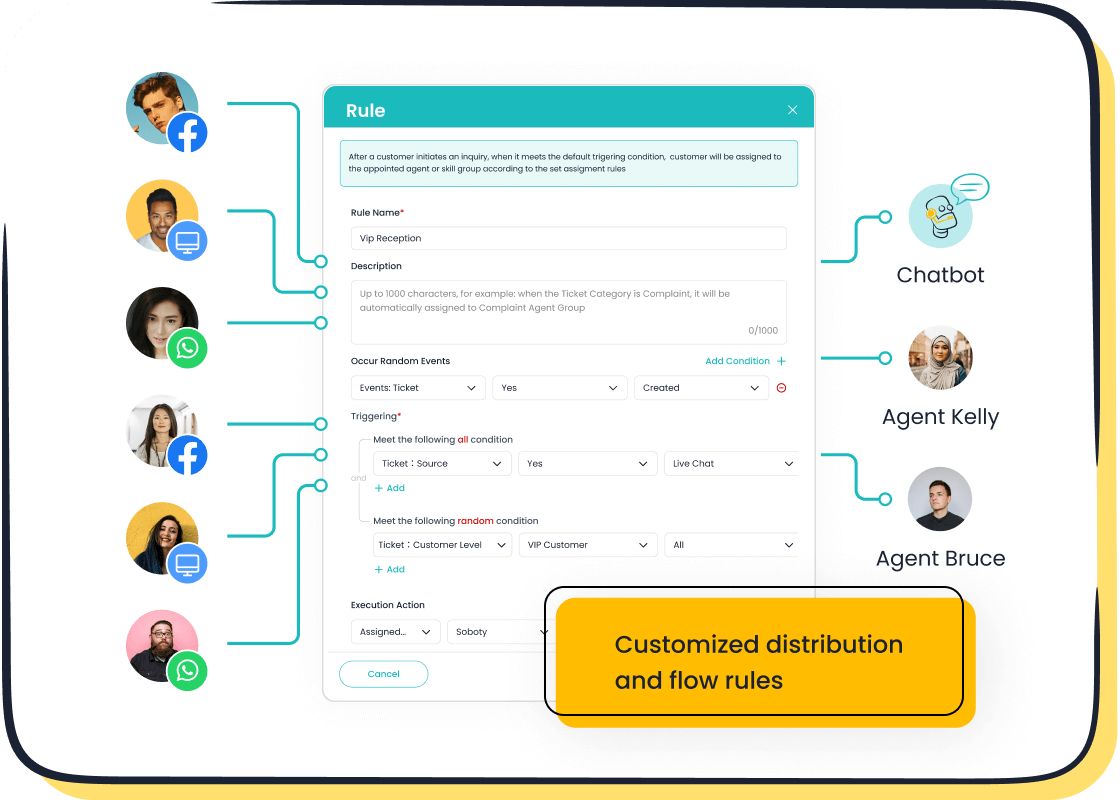
Studies show that unmet needs, like a lack of control or fairness, often trigger anger. By offering solutions and using positive language, you can restore their sense of control. For example, saying, “Let me help you fix this,” shows you’re prioritizing their concerns. Tools like Sobot Live Chat make this process smoother by providing agents with customer history and insights, enabling faster conflict resolution.
Why Calming Angry Customers is Essential for Customer Satisfaction
Calming angry customers is crucial for maintaining customer satisfaction. Research reveals that 83% of customers remain loyal to companies that effectively address complaints. When you calm a customer, you show them that their concerns matter. This builds trust and loyalty, which are key to long-term relationships.
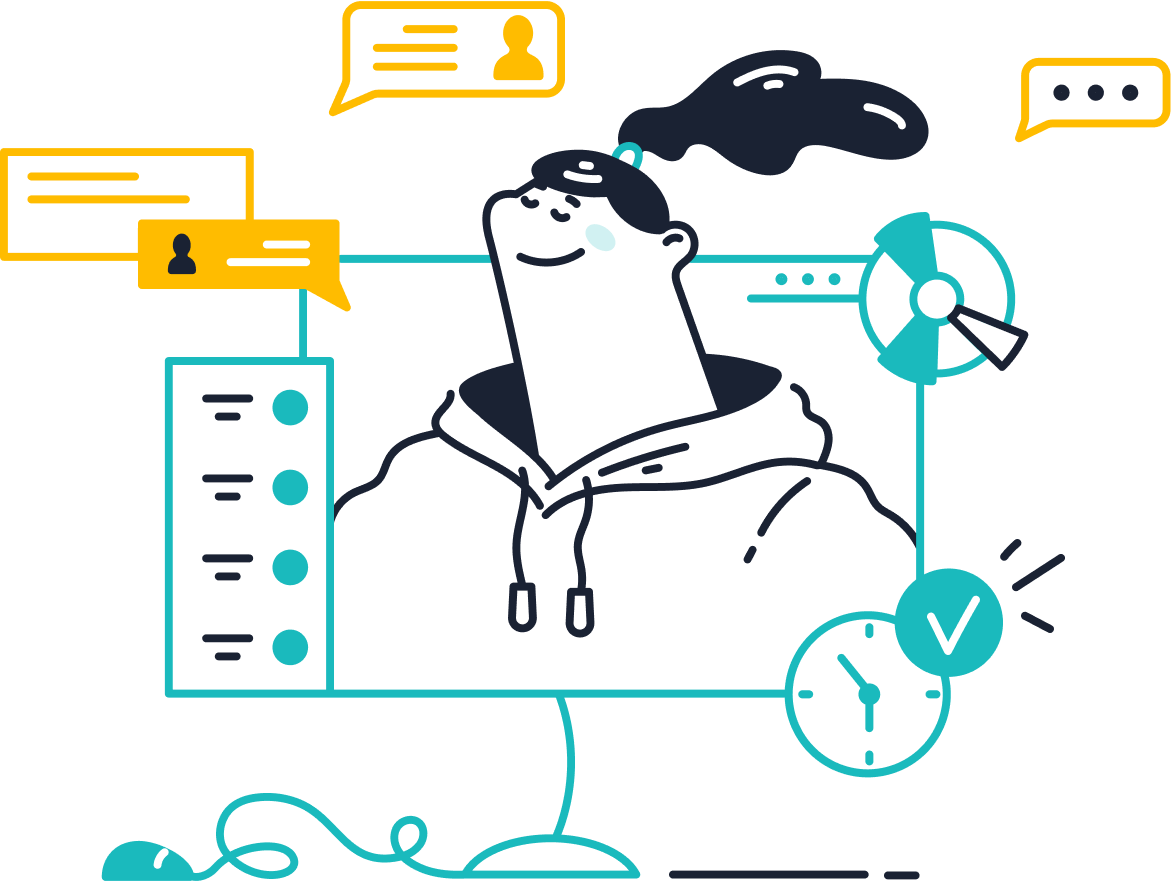
Empathy is another game-changer. Studies indicate that 60% of consumers prefer businesses that show they care. By understanding their frustration and responding thoughtfully, you can turn a negative experience into a positive one. Sobot Live Chat enhances this process by equipping agents with real-time data, helping them respond with empathy and precision.
Common Mistakes to Avoid When Handling Angry Customers
Avoiding common mistakes can make a huge difference when you handle angry customers. First, don’t ignore the urgency of their complaint. Customers want to feel their issue is a priority. Second, always identify the root cause. If you don’t, the problem might resurface, frustrating the customer further. Third, never lose your composure. Staying calm is essential for effective conflict resolution.
Lastly, don’t overlook the importance of preparation. Understanding your customer’s needs helps you communicate better. Sobot Live Chat simplifies this by consolidating customer data in one place, ensuring you’re always prepared to address their concerns.
Staying Calm to De-Escalate the Situation
Techniques to Maintain Composure During Heated Interactions
Remaining calm during heated interactions is a skill you can develop with practice. Here are some proven techniques that help agents stay composed:
- Emotional Intelligence & Empathy Training: Learn to recognize and respond to customer emotions effectively.
- Active Listening Workshops: Focus on listening with intent rather than reacting immediately.
- Situational Awareness & Problem-Solving Drills: Adapt your responses based on the customer’s needs.
- Real-Time Call Coaching & Feedback Loops: Get instant feedback to improve your approach.
- Communication & De-escalation Techniques: Use calming language to diffuse tension.
- Customer Journey Mapping: Understand the customer’s experience to anticipate their concerns.

These techniques not only help you remain calm but also make customers feel valued. Sobot Live Chat enhances this process by providing real-time customer insights, allowing you to tailor your responses and calm down even the most frustrated customers.
The Role of Emotional Intelligence in Managing Stress
Emotional intelligence plays a huge role in managing stress during customer interactions. It helps you stay composed, even when faced with angry customers. For example, training programs on emotional intelligence have reduced turnover rates by 30% in call centers while improving customer service metrics.
Southwest Airlines demonstrated this when an employee used emotional detachment to handle high-stress situations, leading to a 25% increase in customer satisfaction scores. By understanding your emotions and controlling your reactions, you can remain calm and focus on resolving the issue.
Sobot Live Chat supports this by automating repetitive tasks, freeing up your mental bandwidth to focus on complex customer concerns. With AI-powered tools, you can stay focused and deliver empathetic service without feeling overwhelmed.
How Sobot Live Chat Helps Agents Stay Focused and Calm
Sobot Live Chat is designed to help you stay calm and efficient during customer interactions. Its unified workspace consolidates all customer data, so you don’t waste time switching between systems. AI-powered tools handle repetitive queries, reducing inbound discussion volume by 20%.
Here’s how Sobot Live Chat improves your workflow:
| Metric Description | Value |
|---|---|
| Reduction in inbound discussion volume | 20% |
| Positive feedback from customers | 96%+ |
| Correct answers provided by AI platform | 80% |
| Customer satisfaction rate (CSAT) | 97% |
| Problems solved with Sobot solutions | 85% |
| Overall customer happiness | 99% |
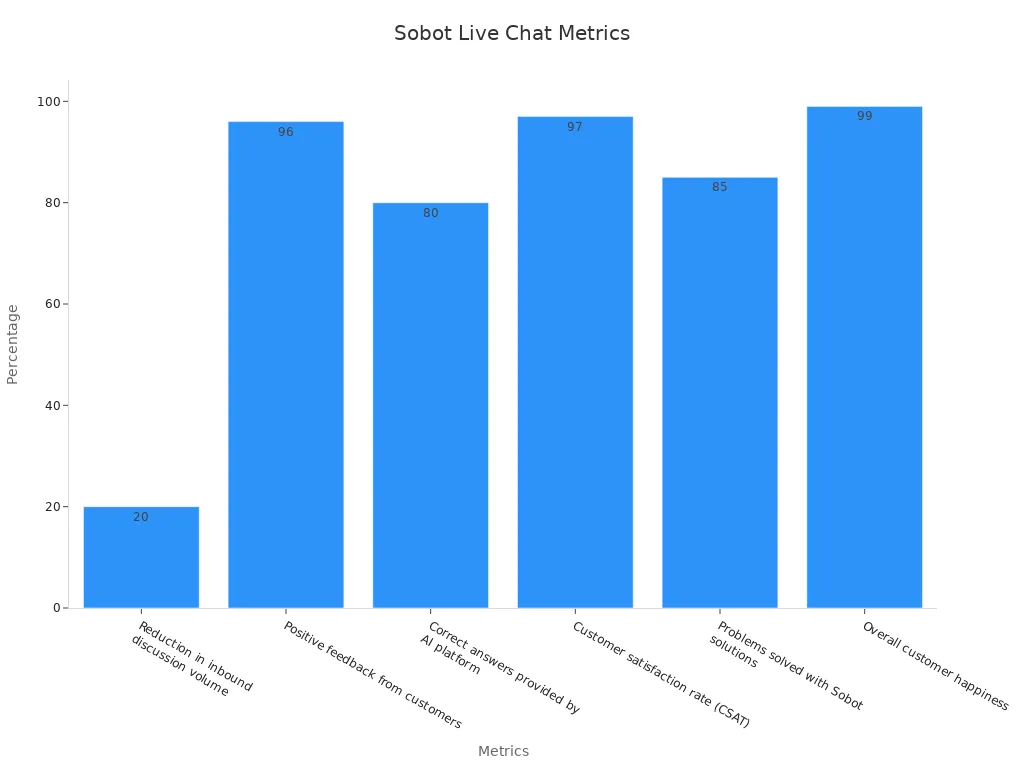
By streamlining your workflow and providing actionable insights, Sobot Live Chat ensures you remain calm and focused, even during challenging conversations.
Active Listening: A Key to Calming Angry Customers

How to Listen Without Interrupting
When a customer is upset, they want to feel heard. The best way to achieve this is to actively listen without interrupting. Let them express their frustration fully before you respond. Interrupting can make them feel dismissed, which only fuels their anger. Instead, focus on their words and tone. This shows you care about their concerns.
A simple trick is to take notes while they speak. This keeps you engaged and ensures you don’t miss important details. For example, if a customer says, “I’ve been waiting for a response for three days,” jot it down. When it’s your turn to speak, you can address their specific concern, like, “I understand you’ve been waiting for three days. Let’s resolve this now.”
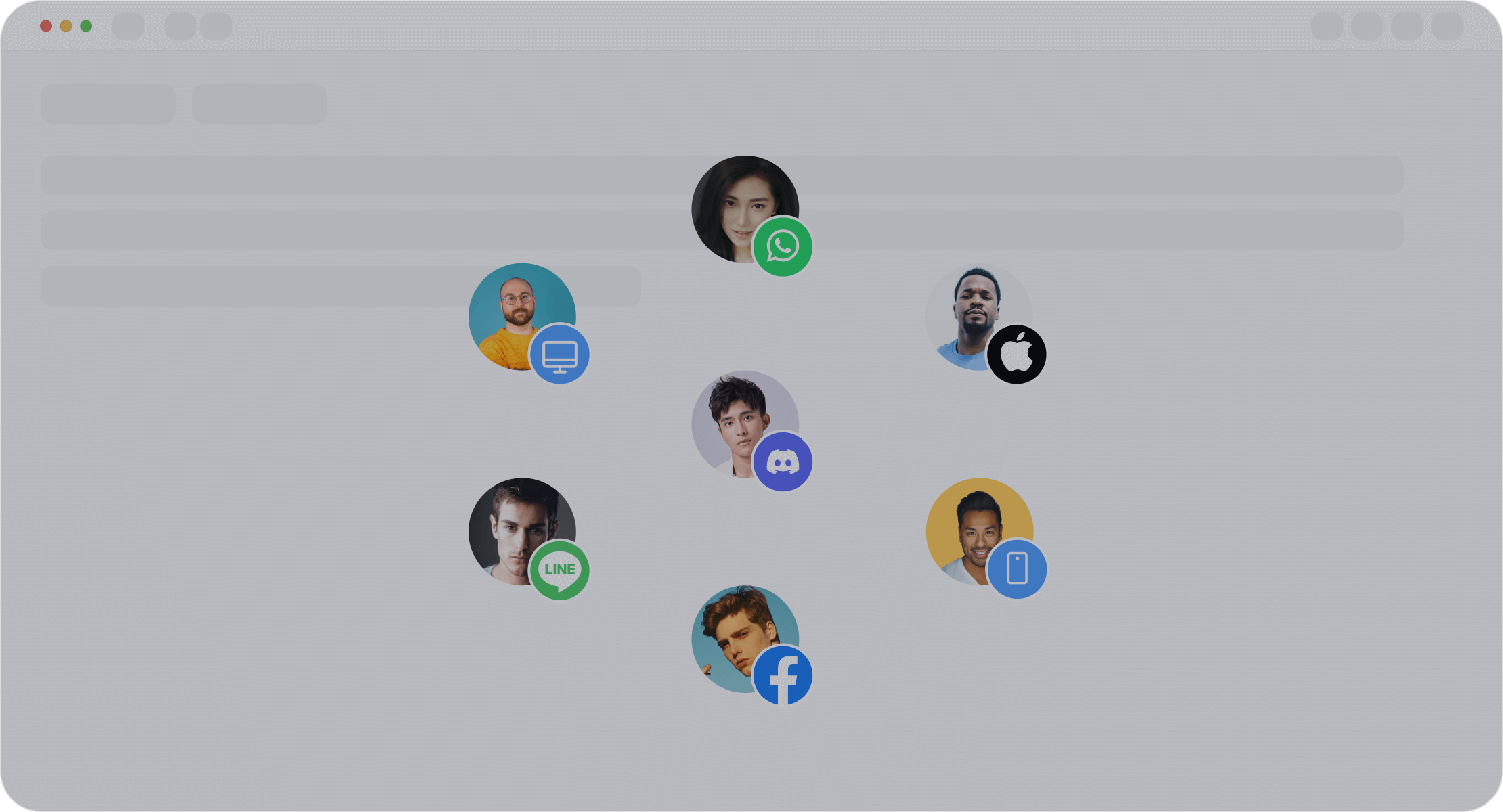
Sobot Live Chat makes this process easier by providing a unified workspace where you can view customer history and track their concerns in real time. This ensures you’re always prepared to respond thoughtfully.
Using Verbal and Non-Verbal Cues to Show Understanding
Your words and body language can make a big difference when calming an angry customer. Simple phrases like “I see what you mean” or “That must have been frustrating” validate their feelings. Pair these with non-verbal cues like nodding or maintaining eye contact to show you’re fully engaged.
Research supports this approach. For instance:
| Study | Findings |
|---|---|
| Robertson (2005) | Active listening enhances communication between therapists and clients, facilitating understanding through verbal and non-verbal cues. |
| Nugent and Halvorson (1995) | Active listening can reduce symptoms of depression, indicating its effectiveness in therapeutic settings. |
| Wanzer et al. (2004) | Client-centered communication positively influences client satisfaction, demonstrating the importance of understanding in interactions. |
| Martin et al. (2017) | Attitude-oriented training in active listening leads to better responses to clients' feelings compared to technique-oriented training. |
| 180ops (n.d.) | Non-verbal communication strategies like eye contact and mirroring body language improve client relationships and sales performance. |
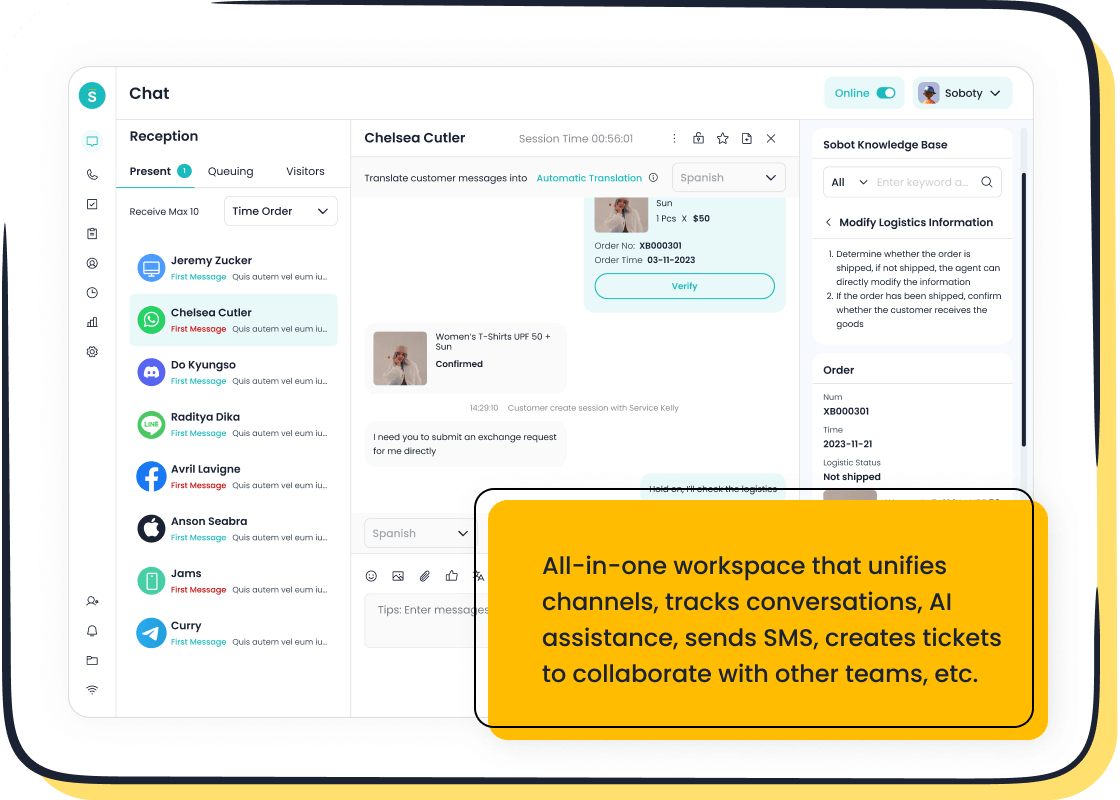
Sobot Live Chat enhances this by offering features like real-time chat and customer insights, helping you respond with empathy and precision.
The Power of Paraphrasing to Validate Customer Concerns
Paraphrasing is a powerful tool in active listening. It shows the customer you’ve understood their issue and are ready to help. For example, if a customer says, “I’m upset because my order hasn’t arrived,” you can respond with, “So, you’re frustrated because your order is delayed. Let’s fix that for you.” This not only validates their feelings but also shifts the focus toward a solution.
Paraphrasing also helps clarify misunderstandings. If you misinterpret their concern, they can correct you, ensuring you’re both on the same page. Sobot Live Chat supports this by providing detailed customer data, so you can paraphrase accurately and address their concerns effectively.
Empathy: The Foundation of Handling Angry Customers
What Does Empathy Look Like in Customer Service?
Empathy in customer service means putting yourself in the customer’s shoes and understanding their frustration. When you empathize with a customer, you create a connection that helps them feel valued. For example, saying, “I understand how that would be frustrating,” or “I’m sorry you’re disappointed. I will fix this,” shows genuine concern and builds trust.
Empathy isn’t just about words—it’s about actions too. Listening carefully, acknowledging their feelings, and offering a solution all demonstrate that you care. Did you know 70% of buying experiences depend on how customers feel they’re being treated? When you show empathy, you turn angry callers into loyal customers who are more likely to recommend your business.
Phrases to Use to Show Empathy and Build Trust
The right words can make all the difference when calming an upset customer. Here are some phrases you can use to show empathy and build trust:
- “I want to make sure I understand the issue.”
- “Thank you for being so patient.”
- “You are completely right. That shouldn’t have happened.”
- “I’m sorry for the inconvenience. Let’s resolve this together.”
These phrases show genuine concern and help establish an emotional connection. Remember, a genuine apology builds emotional connection and can turn a negative experience into a positive one.
How Sobot Live Chat Enhances Empathy Through Customer Insights
Sobot Live Chat takes empathy to the next level by equipping you with real-time customer insights. With its unified workspace, you can view a customer’s history, preferences, and past interactions instantly. This allows you to empathize with a customer more effectively because you already understand their journey.
For example, if a customer contacts you about a delayed order, Sobot Live Chat provides all the details you need to address their concern quickly. You can say, “I see your order was delayed. I’m sorry for the inconvenience. Let me fix this for you.” This personalized approach shows empathy and builds trust.
Additionally, Sobot Live Chat’s AI-powered tools handle repetitive tasks, giving you more time to focus on meaningful conversations. By showing empathy and offering tailored solutions, you can turn frustrated customers into loyal advocates for your brand.
Offering Solutions and Following Up to Rebuild Trust

How to Propose Solutions That Address the Root Cause
When you manage angry customers, offering solutions that address the root cause is essential. It’s not just about fixing the immediate issue—it’s about ensuring the problem doesn’t happen again. Start by identifying the underlying reason for their frustration. For example, an airline improved customer ratings by creating a consistent communication protocol after realizing delays caused dissatisfaction. Similarly, XYZ Company reduced complaints by 50% through targeted solutions derived from root cause analysis.
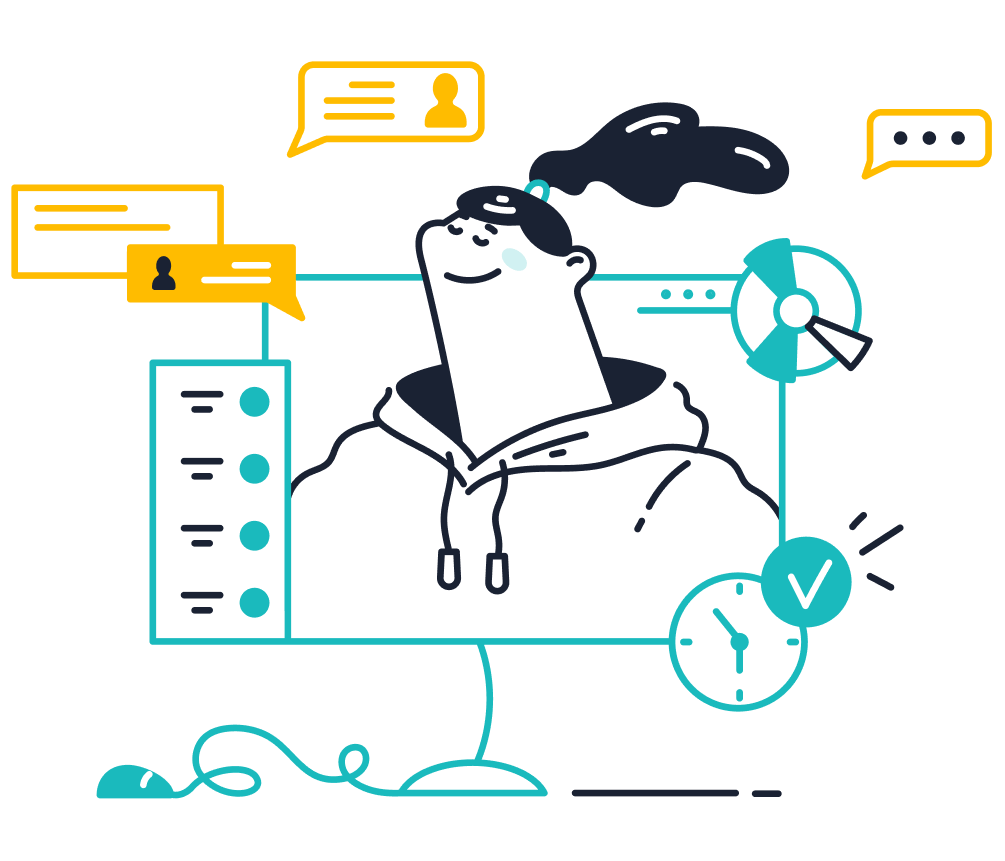
Once you’ve pinpointed the issue, offer a solution or next steps that show you’re committed to resolving it. Be specific and transparent. For instance, if a customer’s order is delayed, explain why it happened and how you’ll prevent future delays. Tools like Sobot Live Chat can help by providing detailed customer histories and insights, enabling you to de-escalate situations effectively.
The Importance of Clear Communication When Resolving Issues
Clear communication is the backbone of excellent customer support. When you explain solutions clearly, customers feel confident in your ability to resolve their concerns. Avoid jargon and keep your language simple. For example, instead of saying, “We’re escalating this to Tier 2,” say, “Our specialist team will review this and get back to you shortly.”

Transparency also matters. Let customers know what to expect and when. If you’re resolving a technical issue, provide updates at every stage. This approach not only improves the customer experience but also helps turn dissatisfaction into trust. Sobot Live Chat supports this by offering real-time updates and automated notifications, ensuring customers stay informed throughout the process.
Following Up to Ensure Long-Term Customer Satisfaction
Following up is a powerful way to rebuild trust after resolving an issue. It shows customers you care about their experience beyond the initial interaction. Metrics like Net Promoter Score (NPS) and Customer Satisfaction (CSAT) highlight the importance of follow-ups. For instance:
| Metric | Description | Importance in Follow-up Actions |
|---|---|---|
| NPS | Measures likelihood of recommending a product/service | Provides actionable feedback for long-term growth and retention |
| CSAT | Assesses customer satisfaction with a specific interaction | Helps identify immediate service issues and areas for improvement |
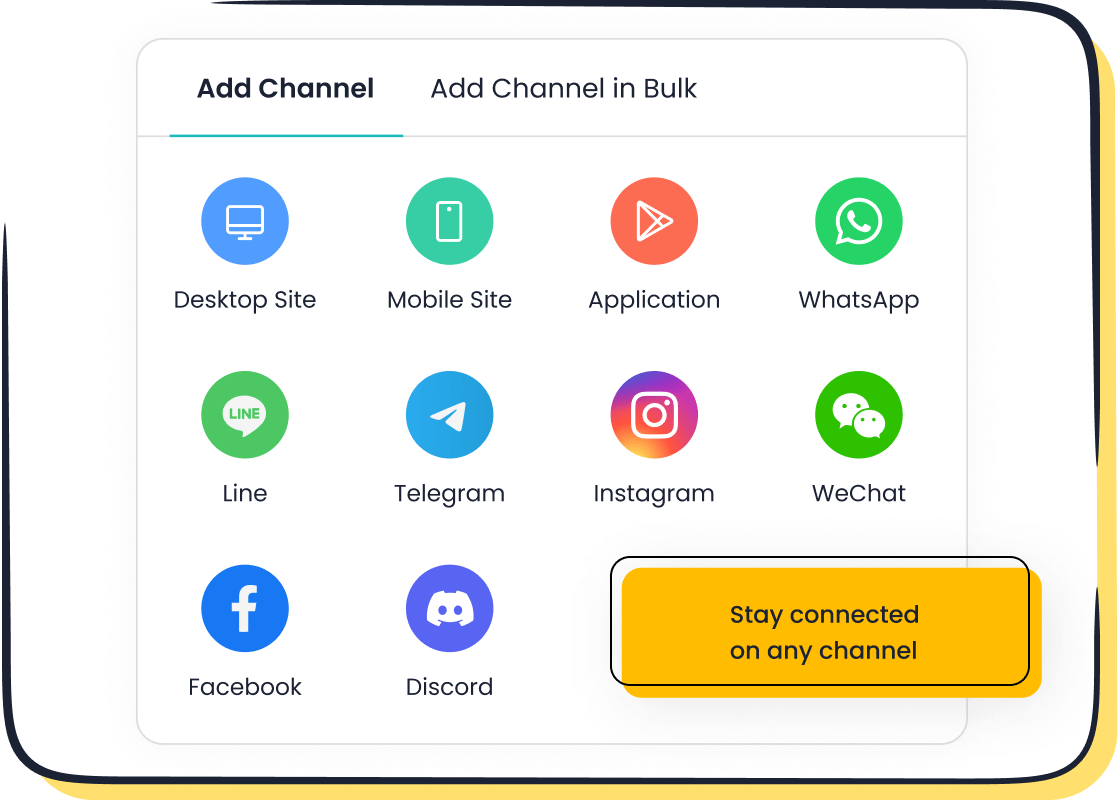
| CES | Evaluates ease of use for customers | Directly informs adjustments needed to enhance user experience |
A simple follow-up email or message can make a big difference. Ask if the solution met their expectations or if they need further assistance. Sobot Live Chat simplifies this process with automated follow-up tools, helping you maintain strong relationships and ensure long-term satisfaction.
Calming angry customers involves staying calm, listening actively, empathizing, and offering tailored solutions. Follow-up actions rebuild trust and ensure long-term satisfaction. These steps enhance customer satisfaction, streamline communication, and improve efficiency. Tools like Sobot Live Chat simplify this process by tracking concerns, analyzing satisfaction scores, and helping you resolve issues effectively.
FAQ
What should you do if a customer refuses to calm down?
Stay patient and professional. Use tools like Sobot Live Chat to track their concerns and offer solutions. If needed, escalate the issue to a supervisor for resolution.
How can Sobot Live Chat help with angry customers?
Sobot Live Chat provides real-time customer insights, AI-powered tools, and a unified workspace. These features help you respond quickly, reduce frustration, and resolve issues effectively.
Why is follow-up important after resolving a customer complaint?
Follow-ups show you care about their experience. They also help rebuild trust and ensure long-term satisfaction. Sobot Live Chat automates follow-ups, saving you time and effort.
See Also
Enhancing Customer Satisfaction Through Effective Live Chat Strategies
Essential Practices for Effective Call Center Quality Management
Effective Strategies for Managing Your Live Chat Agents